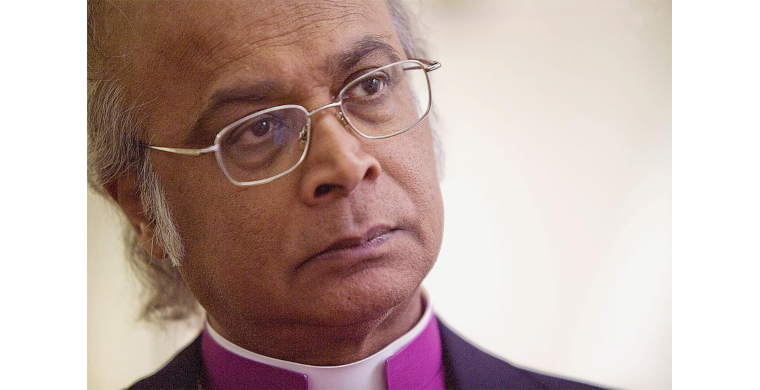The Nazir-Ali option: the real reason why I left the Anglican Communion
Anglican Mainstream
April 28, 2022
I am very grateful for Joshua Penduck's review of Blake Britton's Reclaiming Vatican II (CEN, 14 April). He is right, of course, to point out that the Catholic Church has, within it, many of the same differences of opinion that have led the Anglican Communion and 'mainline' protestant denominations to their current crisis.
I am grateful also that he acknowledges my article in First Things, as clarifying and framing my decision to join the Ordinariate within the Catholic Church. My decision, however, as I explain in my article, had less to do with the presenting moral, sacramental and eccclesial issues facing the churches in the West today and more to to with how these, and other, issues are addressed and resolved.
As I have said, true catholicity demands that there should be a way of deciding on matters which affect all in such a way that the decisions are universally applicable. The radical doctrine of Provincial autonomy has made authentic conciliarity impossible in the Anglican Communion, with the highest authorities repeatedly declaring that there is now no way in which such catholicity can be ensured.
This has also resulted in there being no common body of authoritative teaching to which appeal can be made and by which the faithful can be guided, precisely in times of spiritual and moral turmoil. By the way, such teaching can also be used for the 'fraternal correction' of church leadership which is seen to be straying from the deposit of faith, for example, in the way the Polish, Scandinavian and English speaking bishops have recently done to the leaders of the German church.
There is no effective magisterium, at any level, in the Anglican Communion which can intervene to set out the faith and practice of the church so that the faithful may be guided by it. Authentic magisterial authority can be exercised locally, nationally and universally but the Apostolic and historic role of the Universal Primate, and of the bishops in communion with him, can no longer be neglected in matters which have to do with the universal faith, worship and morals of the Church.
One of Anglicanism's classic claims was that it believed and practised nothing that the universal Church, down the ages and across the world, did not profess and practise. With unilateral decision making now embedded in many provincial and Communion structures, on such vital matters as the nature and sanctity of the human person, marriage and family, Apostolic order and much else, these claims can no longer be seen as credible.
I continue to believe that the Anglican tradition has always had an impulse towards greater catholicity and a contrary impulse towards greater fragmentation.
Unhappily, it seems, in our age, to have chosen the latter; a path that will lead increasingly to be seen as one more instance of liberal Protestantism rather than as an expression of the Catholic Church.
My prayer remains, of course, that the Lord of the Church will lead Anglicans back to the faith and mission of St Augustine and his companions and to that of the Northern saints who so effectively evangelised many parts of Britain and the Continent of Europe. It may that the work of ARCIC and of IARCCUM, in which 1 played a modest part, will still lead to that reconciliation for which we prayed and worked.
Michael Nazir-Ali Oxford Centre forTraining, Research, Advocacy and Dialogue














